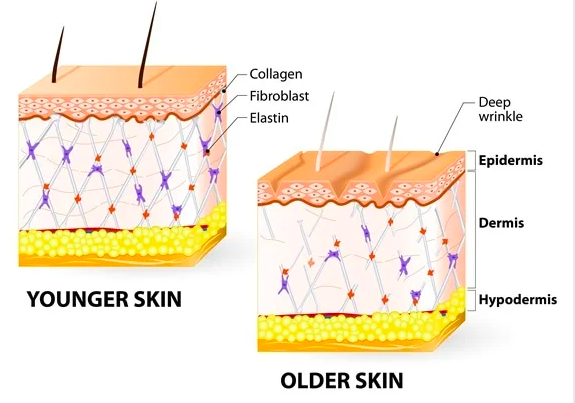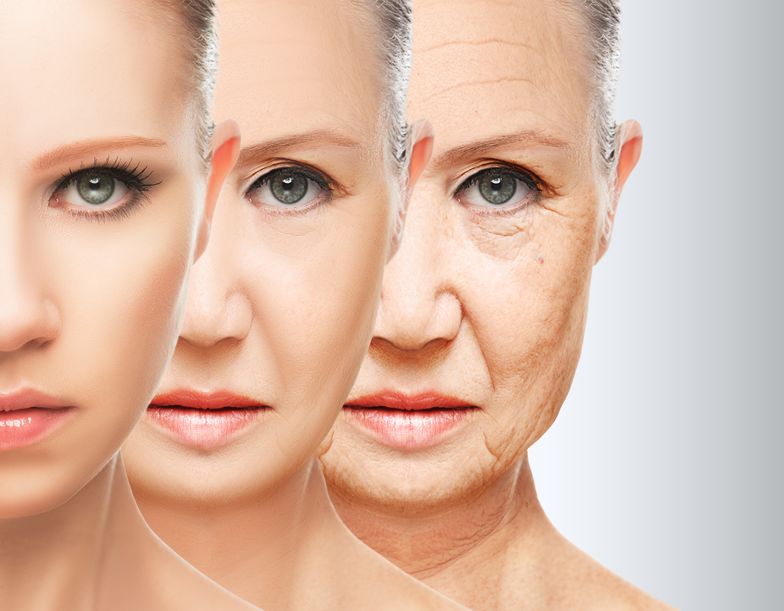When it comes to our skin, age isn’t necessarily just a number. Unfortunately, as our age increases, the production of collagen and elastin in our dermis decreases. Let’s unpack this further- what is collagen, what does it do, and how can we maintain it?
What is Collagen?
Collagen is dispersed throughout the body in concentrated amounts; in our bones, tendons, muscles, and skin. It acts as a sort of glue, providing structure to the various parts of the body. Collagen makes up approximately one-third of protein in the human body; with the molecules usually packed closely together to form stretchy, strong fibrils. As we age, this strong network of cells starts to become more sparse. Picture a brick wall, that has lost a few of its bricks– the wall will likely not be able to withstand the elements as effectively as before. So, as the structural integrity of the skin decreases, wrinkles begin to form. In women, this is most noticeable after menopause or around the of age sixty.

Contributing Factors
Aside from the inevitable phenomenon of aging, other factors may contribute to decreased production. Smoking, exposure to UV rays from harsh sunlight, and a high-sugar diet are all such factors. Thus, taking preventative measures to reduce exposure to these elements can prove beneficial to the skin (and to your general health!).
Studies have shown that topical creams and serums claiming to increase the skin’s collagen levels are likely not directly producing new collagen. This is due to the size of the collagen molecule, which is too large to be absorbed through the skin. As with Hyaluronic Acid, injectable fillers can provide a long-term solution for wrinkles in very specific areas of the skin. Additionally, treatments such as the TriPollar treatment from Divine Pro involving radiofrequency can produce new collagen cells with non-invasive technology. By heating the dermis, collagen fibers contract and stimulate the production of collagen, elastin, and hyaluronic acid. A 2006 study showed that the use of heat on the skin can repair wrinkles through the up-regulation of collagen synthesis. So, don’t let age define you through your skin- after all, it is just a number.


